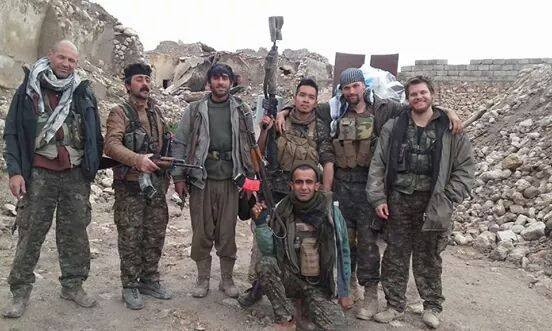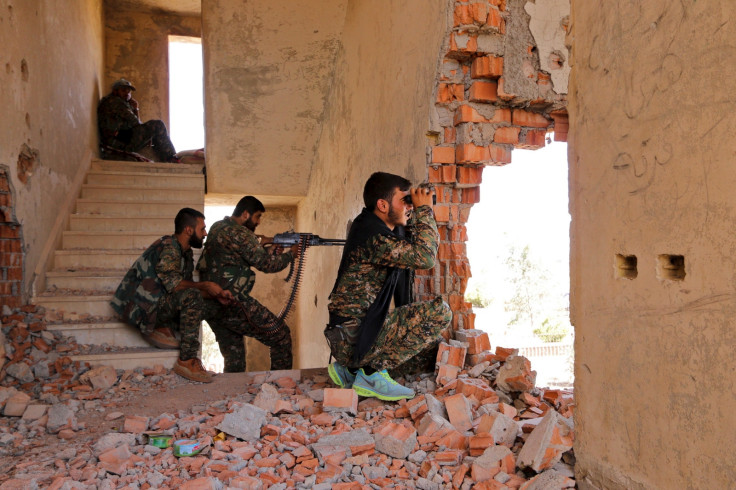Isis: Who are the British 'Lions of Rojava' fighting against Islamic State?

Three Britons who volunteered to go to the Middle East to fight against Isis have spoken about their motivation, the reality of conflict - and why the West should be doing more to beat Islamic State. The three men, who did not know each other before volunteering, have opened up about their experiences in a Channel 4 documentary screened tonight (16 September).
The three men - Jim, 40, from Stoke; Harry, 28, from London; and Jac, 22, from Bournemouth - all joined a Kurdish unit, the Lions of Rojava, after making contact with the group via Facebook. They then flew to Iraq and joined the unit, which numbers five foreigners among 30 Kurds - many of them women, some teenage girls.

The film followed the unit as they advanced on Isis positions in a number of villages across the Abdul Aziz mountains in northern Syria. The footage is sometimes graphic, and manages to portray the confusion and fear of fighting in the militias. When the group prepare to take the local Isis HQ, but discover US air strikes have already decimated the Jihadists, the fighters seem part-relieved, part-disappointed.
The legality of joining up with anti-IS militants is unclear. In January, an 18-year-old British girl was arrested and charged for attempting to join a Kurdish group. Shilan Ozcelik from London, was charged with engaging in conduct in preparation for giving effect to an intention to commit acts of terrorism under the 2006 Terrorism Act.
#BritsBattlingIsis alongside Kurdish fighters are brave indeed. While Cameron sells arms that Turkey is using to attack those same Kurds.
— Why to vote Green (@WhyToVoteGreen) September 16, 2015When Harry returned from Syria he was questioned by police on arrival, but no charges were brought. However, a Home Office spokesperson told the BBC: "The best way to help the people of these countries is to donate to registered charities that have ongoing relief operations, not by taking part in a conflict overseas, which can be an offence under both criminal and terror laws."
For the three Britons waging a personal war against Isis, being arrested at Stansted doesn't seem to weigh so heavily on the mind as the thought of being killed, like fellow British volunteer Erik Scurfield.
At the end of the programme it is revealed that many of those who were filmed have since died - but the three Britons featured in the documentary, lived to fight another day. Two have already returned to the Middle East. There are now around 70 Britons fighting for the Kurds and up to 1,000 fighting for Isis.
"Frontline Fighting: The Brits Battling ISIS" first broadcast 16 September on Channel 4.
© Copyright IBTimes 2025. All rights reserved.




















